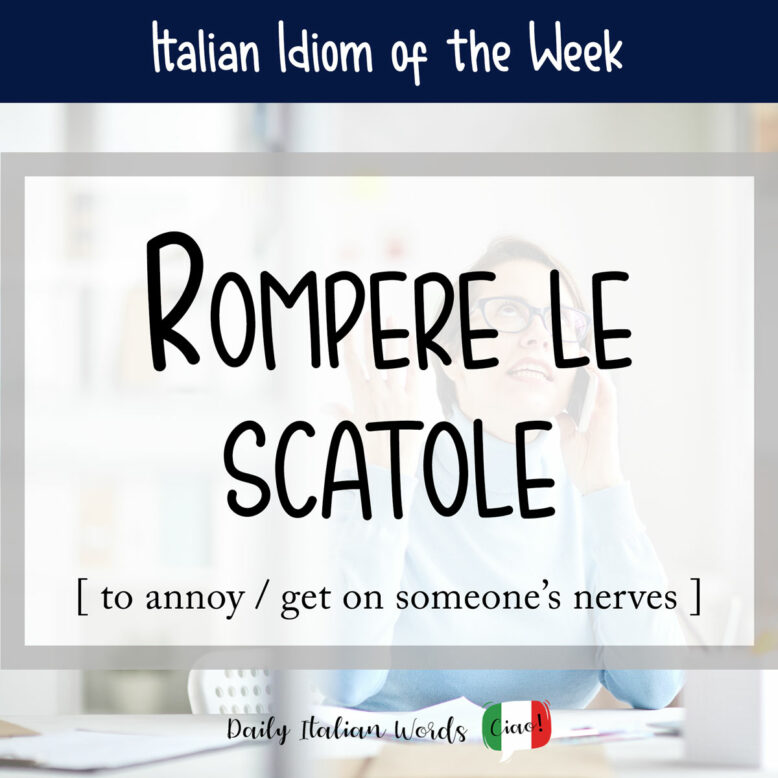When my young son is tired or bored, he has the tendency to orbit around me, endlessly repeating the word mamma, in an effort to grab my attention. By the hundredth repetition, I occasionally can’t resist thinking to myself, “Ma smettila di rompermi le scatole!” (Don’t worry, I never actually say this to him! 😀)
Rompere le scatole is, in short, an idiomatic way of saying dare fastidio, which means “to annoy” or “to get on someone’s nerves“.
Rompere le scatole
To annoy / get on someone’s nerves

The idiom is made up of the verb rompere (to break) and the plural feminine noun le scatole (the boxes), so the literal translation is “to break the boxes“.
This saying dates back to the era of the Great War. In those times, soldiers were instructed to open cardboard scatole containing their ammunition supplies prior to launching an assault. The act of going on the offensive held the looming risk of death, intensifying the gravity of the command to “rompere le scatole“. (Source: TGCom24)
In modern times, the saying has shed its association with death, while still preserving its negative undertones.
I paparazzi rompevano le scatole agli attori, fotografandoli senza sosta.
The paparazzi were getting on the actors’ nerves, photographing them relentlessly.

Whereas in English, “to annoy” takes a direct object, the Italian equivalent is followed by the preposition a (to) and therefore requires an indirect object pronoun: rompere le scatole a qualcuno.
Luca rompe le scatole a lui. > Luca gli rompe le scatole.
Luca annoys him.
Io rompo le scatole a te. > Io ti rompo le scatole.
I annoy you.
A related noun is rompiscatole, a term used to describe someone who is annoying.
Naturally, there are coarser renditions of this idiom, substituting scatole with the somewhat vulgar palle (balls) and the very vulgar coglioni (testicles).
Heather Broster is a graduate with honours in linguistics from the University of Western Ontario. She is an aspiring polyglot, proficient in English and Italian, as well as Japanese, Welsh, and French to varying degrees of fluency. Originally from Toronto, Heather has resided in various countries, notably Italy for a period of six years. Her primary focus lies in the fields of language acquisition, education, and bilingual instruction.


